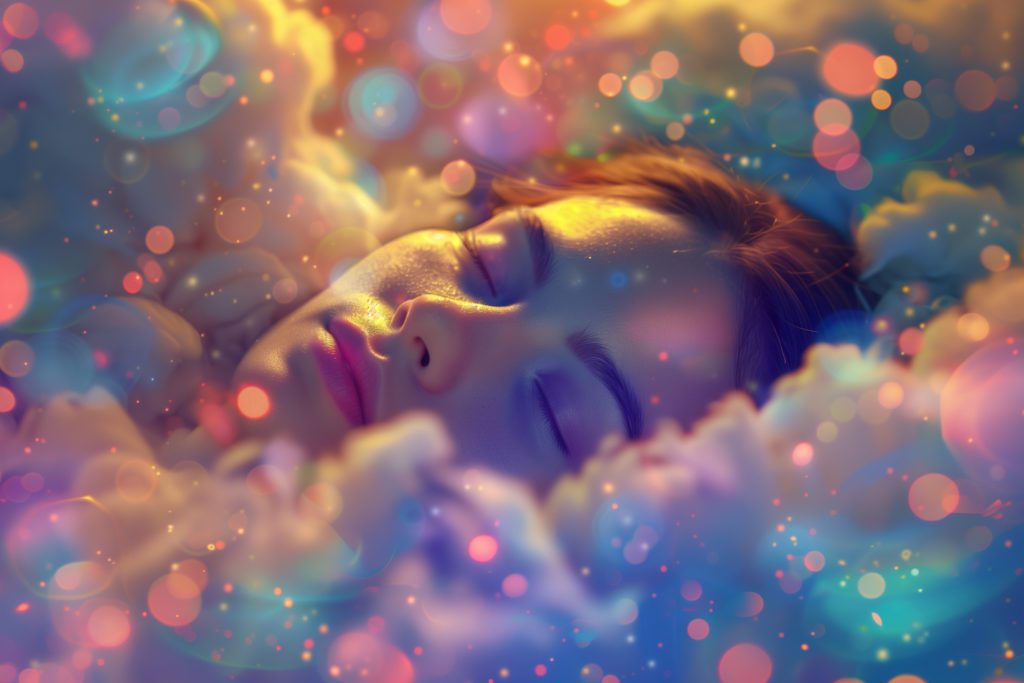
How Dreams Reflect and Influence Mood?
Have you woken up after a great dream in the best mood? Read more to learn how your dreams might reflect and even influence your mood.

Have you ever woken up from a pleasant dream and felt extremely happy? It’s not a coincidence—in fact, there is a proven connection between our dreams and our moods. Freud himself said that our dreams are the key to how we “access” our inner worlds. As you may know, our dreams are important and often include symbolic messaging, but they can actually reflect our moods and influence how happy or sad we may be upon waking.
In this article, we’ll explore exactly why this is the case and how our dreams can reflect and influence our moods. We’ll dive deep into how our dreams help us emotionally process and even how they impact stress. We’ll even explore why some researchers believe that our dreams can resolve our moods or prepare us emotionally for what is to come. Let’s first examine how emotional processing can occur in our dreams and why.
Emotional Processing Through Dreams
Did you know that our dreams are not random but can help us process what we are experiencing emotionally? The hippocampus and the amygdala are two critical parts of our brains that are connected to emotional processing and memories, but they are also deeply involved in dreaming while we rest. While these two parts of the brain are active during waking, they are also used during the brain to help with cognitive and emotional processing (Source: PubMed).
That means that while we dream, our brain helps us process our day, including our emotions, so that we can rest and wake up feeling refreshed. That might be why people often say that all they need to do is lie down and sleep away their mood! It might not work every time, but when you’re stressed, a quick nap can do wonders for your mood and help you process the unpleasant emotions you’re feeling.
Dreams Impact and Reflect Our Stress Levels
You might be surprised to find out that our dreams can actually impact and even reflect our stress levels. If you’ve ever had a bad dream wake you up out of a dead sleep, then you know exactly what we mean! Nightmares can arise because of stress, especially if you have post-traumatic stress disorder (Source: Harvard Medical School). However, they can also cause us to become more stressed as a result.
If you have recurring nightmares, you might be experiencing more of a psychological burden than others. According to experts, nightmares can not only arise out of stress but also can cause you to feel more anxious, stressed, or even just in a worse mood as you wake up and start your day. So, if you have found yourself in a worse mood after a bad dream, this could be why. Alternatively, if you have experienced a lot of stress in recent days, don’t be surprised if you have a bad dream or two in the future!
Mood Congruence within Dreams
One of the most fascinating findings about how our dreams reflect and impact our moods is that our moods and dreams often parallel one another. In other words, if you’re feeling frustrated, you might have more negative dreams—or rather, you might interpret them that way. It’s a classic case of bias toward our own imagination and the visions we see when we sleep!
When analyzing self-reported feelings and themes within people’s dreams, people were more likely to state that their dreams had negative aspects when they were frustrated. On the contrary, pleasant moods aligned with more amicable self-reporting on their dreams and the themes within them (Source: Motivation and Emotion). So, if you find yourself feeling like you had a bad dream, take a moment and think if it is your mood that is causing this perception or if it is really the content of your imagination and what you experienced.
Dreams Can Prepare Us Emotionally
Because we can process our emotions, our dreams also have the power to prepare us emotionally. Think back to a time when you were in school and preparing for a speech or a big presentation. Chances are, you likely had a dream or two about this, and it’s not a coincidence.
Studies on those with anxiety have demonstrated that they will often dream up certain negative emotions, symbols, and the like, all of which contribute to a negative experience while dreaming. However, in the end, their rehearsal of certain situations actually allows them to adapt to anxious states in their daily life. In other words, our dreams can be the perfect simulation for us to prepare for that big speech, that presentation, or anything else that gives us anxiety.
Other studies have shown how our dreams can actually help us simulate events so that we can better prepare ourselves. This was seen during the pandemic, as many people experienced higher emotions in their dreams and more bizarre imagery. Nothing was confirmed regarding whether this was due to their daily experiences or their anxieties, but regardless, you can see how this might impact us emotionally and how prepared we might feel because of these simulated experiences (Source: Frontiers in Psychology).
Understand Your Dreams and Enhance Your Sleep Health
Now that you understand a little bit more about our dreams, you can see how they might reflect—and even impact—our moods and how we feel upon waking. There’s a reason that that amazing dream made us feel excited when morning arrived. Just as much as there’s an explanation for why we were startled and anxious in our dream, we might have felt better the next day. Our brains are powerful organs that have the potential to protect us and help us understand our world, even if our dreams may feel bizarre at times!
To learn more about sleep health and discover tips and tricks so you can get quality rest, visit our website to read more articles from the latest experts in the field.

Written by
Marie Soukup
Marie Soukup is a seasoned copywriter, editor, and Integrative Nutrition Health Coach with a certificate from the Institute of Integrative Nutrition (IIN). With years of experience working with brands across diverse industries, Marie is passionate about holistic health and crafting compelling content.
Download Pillow
Get help
Press & News
Legal
Connect
X (Twitter)
Company
Copyright © Neybox Digital Ltd.



